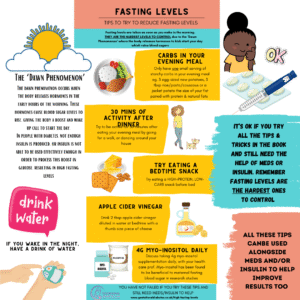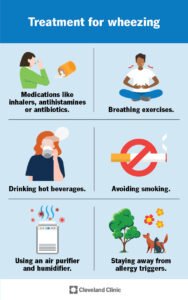Oral Acne Medication Options
Oral Acne Medication Options
Read Time: 6 minutes
Oral acne medications are typically recommended when topical treatments fail to effectively manage or clear acne. These medications may be used individually or in combination with topical treatments. Common oral acne medications include antibiotics, hormonal contraceptives, isotretinoin, and Aldactone (spironolactone). These are generally prescribed for moderate to severe acne vulgaris, the most common form of acne. This article explores the different oral acne treatment options, their potential side effects, and their usage.
When Are Oral Acne Medications Necessary?
Not all acne responds to topical treatments like benzoyl peroxide or salicylic acid. When acne resists these treatments, oral medications may be prescribed to address the underlying causes of breakouts. Some of these medications are taken daily, while others require multiple doses throughout the day. Oral medications are typically used for moderate to severe, treatment-resistant acne, including cystic acne or nodular acne. They may also be beneficial for acne in areas where topical treatments are difficult to apply, such as the back.
Topical treatments over large areas of the skin may cause side effects like redness, irritation, dryness, or peeling. Even less severe acne can be persistent and may benefit from oral treatment. It’s important to discuss the benefits and risks with your dermatologist to make an informed choice. In most cases, the lowest effective dose is prescribed to minimize potential side effects. All oral acne medications require a prescription; there are no over-the-counter alternatives.
Oral Antibiotics for Acne
Oral antibiotics work by eliminating the bacteria responsible for most acne outbreaks, known as Propionibacterium acnes. Unlike some oral medications, dermatologists often start patients on a higher dose, gradually reducing it as acne symptoms improve. The most commonly prescribed oral antibiotics for acne include:
-
Erythrocin (erythromycin)
-
Adoxa (tetracycline)
-
Dynacin (minocycline)
-
Acticlate (doxycycline)
Common side effects include dizziness, nausea, diarrhea, and yeast infections. In rare cases, a severe allergic reaction known as anaphylaxis may occur.
Antibiotic Resistance
Due to the rise of antibiotic-resistant bacteria, oral antibiotics for acne should be used in combination with topical treatments. This dual approach significantly reduces the risk of developing resistance. Antibiotics for acne are generally prescribed for no longer than 3 to 6 weeks. It is not uncommon for dermatologists to recommend topical retinoids, benzoyl peroxide, or other treatments alongside oral antibiotics.
Oral Contraceptives for Acne Treatment
Oral contraceptives, commonly known as birth control pills, are frequently used to treat acne that fluctuates with the menstrual cycle. These medications help reduce oil production by suppressing androgen hormones. They also serve as a two-in-one solution for individuals seeking an effective form of birth control.
Several birth control pills are approved by the Food and Drug Administration (FDA) specifically for acne treatment, including Ortho Tri-Cyclen and Beyaz. Side effects of oral contraceptives may include nausea, vomiting, headaches, abdominal cramps, bloating, breast tenderness, swelling in the ankles and feet, and weight changes. Many dermatologists prescribe topical acne treatments alongside oral contraceptives to enhance the treatment’s effectiveness.
Isotretinoin: A Powerful Acne Treatment
Isotretinoin is often the first-line treatment when topical acne medications fail, especially for severe acne. It is widely regarded as the most effective solution for treating serious acne. Isotretinoin works by shrinking sebaceous glands in the skin, reducing oil production, and preventing pore blockages, which lead to comedones (blackheads and whiteheads).
Common side effects of isotretinoin include dry mouth, dry eyes, sore throat, muscle and joint pain, back pain, rash, and mild itching. Although rare, a severe allergic reaction (anaphylaxis) can occur.
Pregnancy Risks
Isotretinoin should not be used during pregnancy due to the high risk of birth defects. Women of childbearing age must use effective birth control while taking isotretinoin, and the drug should be stopped immediately if pregnancy occurs. Breastfeeding is also not recommended during isotretinoin treatment. If prescribed isotretinoin, patients must enroll in the iPledge program, an FDA initiative designed to mitigate the drug’s risks.
Anti-Androgens: Aldactone for Hormonal Acne
Aldactone (spironolactone) is another oral medication used to treat acne by suppressing androgens, hormones that can trigger acne outbreaks, particularly during the menstrual cycle. Though not specifically designed for acne treatment, Aldactone may be used when acne is caused by hormonal fluctuations.
Aldactone is not typically a first-line treatment but may be helpful for those who cannot tolerate or use oral contraceptives. It also serves as a treatment for high blood pressure and heart failure. Aldactone should not be used by pregnant women or those attempting to conceive, as it can affect fetal development and cause reproductive system issues in male infants.
Conclusion
Oral acne medications can be an effective option when topical treatments fail, particularly for moderate to severe acne. These medications include oral antibiotics, hormonal contraceptives, isotretinoin, and Aldactone (spironolactone). Contraceptives and Aldactone are commonly used for acne related to the menstrual cycle. It’s essential to consult with your dermatologist to understand the benefits, risks, and proper use of these medications. Some treatments, such as isotretinoin and Aldactone, can be harmful if you become pregnant.
Prescription Topical Acne Treatments
For individuals who prefer topical treatments, a variety of prescription options are available to target acne directly. Consult your healthcare provider to explore these treatments, tailored to your specific needs.
Frequently Asked Questions
-
What oral medications are effective for acne?
-
Are oral contraceptives safe for treating acne?
-
How does isotretinoin work for acne treatment?
Expert Tips
-
Consider lifestyle adjustments, such as diet and skincare routines, to enhance the effectiveness of oral treatments.
-
Always follow your dermatologist’s guidance to avoid potential side effects.
Key Takeaways
-
Oral acne medications are often used when topical treatments are not sufficient.
-
Consult a dermatologist for personalized treatment options.
-
Be aware of side effects, especially with isotretinoin and Aldactone, during pregnancy.
Join Our Community Want more inspiration like this? Subscribe to our newsletter for updates on the latest acne treatments and skincare tips!









